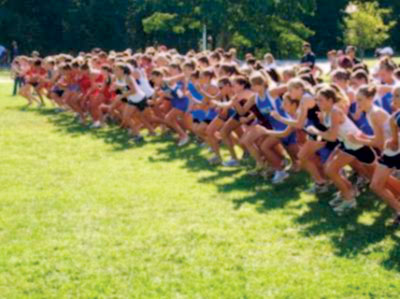All Nonfiction
- Bullying
- Books
- Academic
- Author Interviews
- Celebrity interviews
- College Articles
- College Essays
- Educator of the Year
- Heroes
- Interviews
- Memoir
- Personal Experience
- Sports
- Travel & Culture
All Opinions
- Bullying
- Current Events / Politics
- Discrimination
- Drugs / Alcohol / Smoking
- Entertainment / Celebrities
- Environment
- Love / Relationships
- Movies / Music / TV
- Pop Culture / Trends
- School / College
- Social Issues / Civics
- Spirituality / Religion
- Sports / Hobbies
All Hot Topics
- Bullying
- Community Service
- Environment
- Health
- Letters to the Editor
- Pride & Prejudice
- What Matters
- Back
Summer Guide
- Program Links
- Program Reviews
- Back
College Guide
- College Links
- College Reviews
- College Essays
- College Articles
- Back
The Importance of Exercise for Teenagers
The hustle and bustle of the average teenager’s daily life can cause teens to see exercise as an unnecessary hassle and a waste of time. However, those beliefs are far from true. Even teenagers that do not suffer health problems such as obesity or high cholesterol need a sufficient amount of exercise to live a healthy life. Exercise is important for the teenage body because it not only promotes physical health, but also significantly improves mental heath.
Exercise plays a tremendous factor in a teenager’s mental health by building self-confidence and helping with body image. Teens who exercise tend to have a better body image than those who don’t, regardless of weight or physique (Importance). Exercise helps bolster confidence in adolescents and allows one to tone his or her body in a way that makes him or her feel most comfortable. This also allows one to accept his or her looks and helps one to disregard any insecurity one may have. Although physique is not as important a factor as health, it can strongly affect a teenager’s mood and attitude. A healthier and fitter body builds a greater sense of confidence and can improve a teenager’s body image.
Another mental benefit associated with exercise is the happy, feel-good endorphins that come along with it. Exercise produces endorphins, which are commonly referred to as “the body’s natural pain reliever”. They give a sense of euphoria and well being during and after exercise. Endorphins produce a feel-good effect and can create a sense of emotional well-being, which can become somewhat “addictive” and extremely enjoyable. These endorphins are often referred to as the “runner’s high” (if produced by the body when running) and are also commonly called “happy chemicals”. In addition, they serve as an alternate ‘addiction’ that can actually help teenagers to refrain and steer away from addictive substances such as tobacco, narcotics, and alcohol. (Physical Activity). The body produces endorphins naturally when one exercises strenuously and they make physical activity even more enjoyable. They decrease stress, and can relax one to a point at which it is even easier for one to fall asleep. This decrease in stress can also, in the long run, help one to sleep better at night, and relieve him or her from the stress placed on them in day to day activities including (but not limited to) school and sports (About).
Many students say that exercise is too much of a hassle and that they are too busy with schoolwork to exercise- but many don’t realize that exercise can improve their mental performance. Since aerobic exercises such as walking and jogging increase the flow of oxygen to the brain and heart (Importance)- teenager’s who exercise regularly tend to have the ability to think clearer and faster. In addition, teens that exercise regularly tend to be more focused and perform better in school. Various mental issues can be aided by exercise as well. For example; one who suffers from anger issues may look to exercise as an outlet to “blow off some steam” and improve his or her mood. Teens struggle with anxiety and depression have also found a healthy outlet through exercise, which helps to keep their symptoms in control. In addition, exercise helps teens everywhere to gain self-confidence and also assists in the social development of adolescents. (Mayo Clinic). Exercise improves mental performance and plays a huge role in one’s mental health.
Exercise clearly has more to it than just a physical component, exercise improves self-confidence and mood, creates smile-worthy endorphins, helps teenagers to focus in class, and can help to combat numerous mental issues. What is seen as an “unnecessary add-on” in a teenager’s daily life can actually make the “hustle and bustle” much more bearable.

Similar Articles
JOIN THE DISCUSSION
This article has 0 comments.
